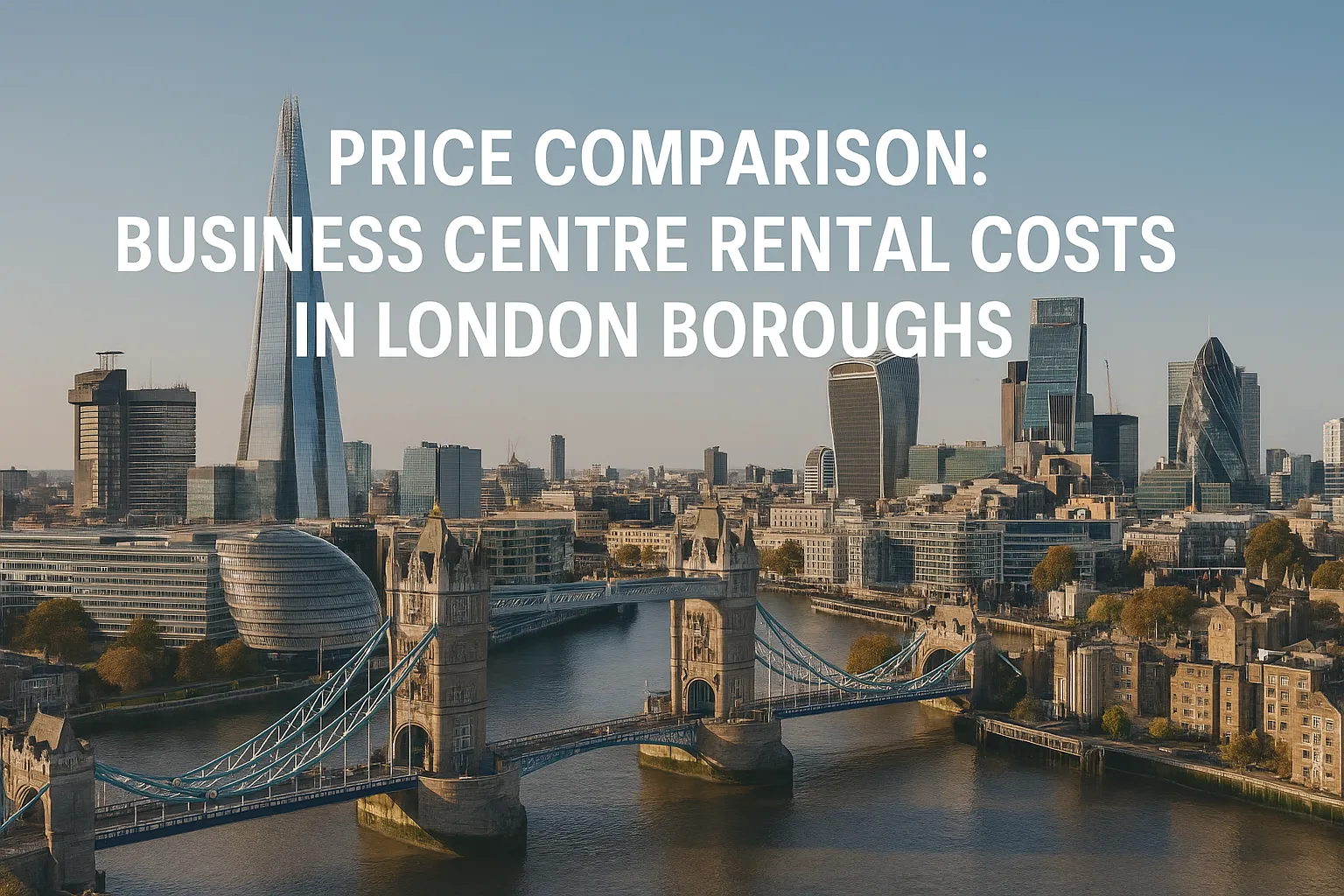London’s business landscape is shifting fast. With hybrid work becoming the default for many, business centres have stepped into a central role—offering a mix of coworking, private suites, and virtual offices tailored to the needs of today’s agile workforce. For startups and entrepreneurs choosing where to plant roots, knowing how costs differ between boroughs can be key to balancing spend with access and opportunity.
Whether you’re building a creative agency, scaling a tech firm, or setting up a satellite team, this breakdown looks at how location shapes not just the price—but the experience—of business centres across London.
Central London: Prestige Meets Price
In boroughs like Westminster, Camden, and the City of London, you’ll find some of the capital’s most iconic addresses. Business centres here aren’t just about workspace—they’re polished, full-service environments with a strong professional presence and proximity to major transport links.
In hotspots like Covent Garden or Soho, desk rentals typically fall between £600 and £900 per month, depending on services and location. Expect concierge desks, stocked kitchens, event areas, and wellness rooms—all bundled into the package.
While pricey, many see the investment as a strategic move. A marketing firm that relocated to Holborn saw a 30% boost in client engagement, crediting the address and onsite networking events for their visibility.
East London: Innovation at a Competitive Price
Boroughs such as Hackney, Tower Hamlets, and Newham have become magnets for tech startups, creatives, and mission-led organisations. East London’s business centres lean into innovation—offering flexible terms, energetic communities, and often a more collaborative culture.
Desks here tend to range from £350 to £550 per month, a sweet spot for early-stage ventures and hybrid teams. Areas like Shoreditch and Whitechapel host centres with built-in programming, mentorship, and sector-crossing connections.
As fintech founder Ahmed shared, “We started with no contacts and a tight budget in Bethnal Green. The people we met there played a big role in our first funding round.”
South London: Community and Affordability
Southwark, Lambeth, and Lewisham are seeing a rise in business centres that put local enterprise and creativity at the forefront. These hubs often foster community and sustainability, creating spaces that blend affordability with cultural energy.
Coworking in this part of town can start from £250 to £400 per desk monthly, with private offices typically ranging from £450 to £700. For teams prioritising lifestyle, community, and local collaboration, South London offers real value.
A Peckham-based design studio made the leap from home setups to a shared office and found more than just space. “It helped us draw a line between home and work,” said founder Katie. “Plus, the community led to creative partnerships we never planned for.”
North and West London: Niche Spaces and Growing Demand
In boroughs like Islington, Hammersmith, and Ealing, demand has grown steadily, especially among businesses decentralising from Central London. West London has become a hub for media, consulting, and design, while North London appeals to startups looking for well-connected but quieter alternatives.
Monthly desk rates in these boroughs typically sit between £300 and £500. You’ll often find well-equipped centres offering everything from podcast studios to kitchen lounges and smart meeting rooms.
These locations strike a balance—offering the essentials for growth, without the intensity (or expense) of the city’s core.
Choosing What’s Right for Your Business
There’s more to consider than just numbers on a page. Think about your team’s routines, your audience, and the type of work culture you want to build. Today’s business centres go beyond desk space—they’re mini-ecosystems designed to support growth, connection, and credibility.
For many founders, the move into a business centre represents a turning point. Some are seeking a sense of belonging after working solo for months; others want a physical space that matches their brand’s ambitions. In either case, the right environment can unlock real momentum.
In Summary
London offers a broad mix of business centre options—each borough bringing its own flavour. From Central London’s prestige to East London’s creative drive, and from South and West’s accessibility to North’s focused calm, there’s something for every business model and mindset.
Choosing the right fit means aligning cost, goals, and culture. When done right, a business centre doesn’t just house your company—it can help launch its next chapter.
